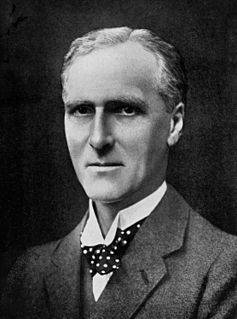Цитата Филипа Янси
Иисус провозгласил в Своей Нагорной проповеди великий переворот в ценностях, возвысив не богатых или привлекательных, а скорее бедных, преследуемых и скорбящих.
Связанные цитаты
Учение Нагорной проповеди состоит не в том, чтобы делать свой долг, а в том, чтобы делать то, что не входит в ваши обязанности. Вы не обязаны проходить вторую милю, подставлять другую щеку, но Иисус говорит, что если мы Его ученики, мы всегда будем делать это. Не будет духа: «О, ну, я больше не могу, меня так неправильно представили и неправильно поняли». . . Никогда не ищи правоты в другом человеке, но никогда не переставай быть правым сам. Мы всегда ищем справедливости; учение Нагорной проповеди гласит: «Никогда не ищи справедливости, но никогда не переставай жить по ней».
Прощение заложено в ДНК преследуемого. Весной этого года один египетский пастор произнес проповедь под названием «Послание к тем, кто нас убивает». В нем он процитировал Иисуса, заявив, что церковь откажется ненавидеть террористов, а вместо этого простит их, помолится за них и полюбит их. Это одна из причин, почему так много террористов приходят к Иисусу.
Только Иисус был бы настолько сумасшедшим, чтобы предположить, что если вы хотите стать величайшим, вы должны стать наименьшим. Только Иисус провозглашал бы Божье благословение бедным, а не богатым, и настаивал бы на том, что недостаточно просто любить своих друзей. Я только начал задаваться вопросом, верил ли кто-нибудь еще, что Иисус имел в виду то, что он сказал.
Великий вопрос нашего времени заключается в том, как сделать так, чтобы продолжающаяся научная революция приносила пользу всем, а не увеличивала пропасть между богатыми и бедными. Чтобы поднять бедные страны и бедняков в богатых странах из нищеты, дать им шанс на достойную жизнь, технологий недостаточно. Технологии должны руководствоваться этическими принципами, если они хотят делать больше, чем просто предоставлять новые игрушки для богатых.
Часто это тяжело. На самом деле, настолько тяжело, что повеление Иисуса любить наших противников и молиться за них считается одним из самых захватывающих дух и душераздирающих испытаний всей его Нагорной проповеди, речи, известной своими возмутительными заявлениями. Не было никаких записей о том, чтобы какой-либо другой духовный лидер когда-либо сформулировал столь четкую и недвусмысленную заповедь людям выражать сострадание к тем, кто активно работает против их интересов.

































